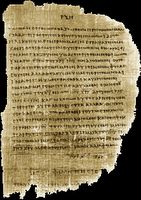Yesterday, we heard the shocking and unexpected news that there were to be more redundancies at work and the affected staff would be informed today. They said that there would be less than 5, but still we all were asking the question, "Is it going to be me?"
Despite the logic that told me that it was unlikely to be me, I still had this nagging doubt that it could still possibly be me. It was hard to get rid of that shocked, heavy, drained feeling at the possibility of redundancy, even with prayer.
What really helped was to sing Psalm 112B from the new RPCI Psalter to the tune
Ellers.
We give thanks to God that I was spared today.
Psalm 112 B Ellers (alt. Eventide)
|
|
| PRAISE to the LORD! The man is blessed indeed |
|
|
| who makes the LORD's commands his great delight. |
|
| 2 | His children will be mighty in the earth; |
|
|
| descendants of the upright will be blessed. |
|
|
| 3 | Abundant riches are within his house; |
|
|
| his righteousness endures forevermore. |
|
| 4 | The darkness of the just will turn to light, |
|
|
| for all his ways are gracious, kind and fair. |
|
|
| 5 | That man is good who gives and freely lends, |
|
|
| and who with justice governs his affairs. |
|
| 6 | The righteous man will never be removed, |
|
|
| and ever will his memory endure. |
|
|
| 7 | At evil tidings he is not afraid; |
|
|
| his heart is steadfast, trusting in the LORD. |
|
| 8 | His heart is steady; he will never fear; |
|
|
| he comes at last to look upon his foes. |
|
|
| 9 | With open hand he offers to the poor; |
|
|
| his good endures; his head is lifted high. |
|
| 10 | The wicked sees and grinds his teeth in rage, |
|
|
| for he despairs; his cherished hope must die. |
Click here for Psalm 112B.Labels: Real Life







